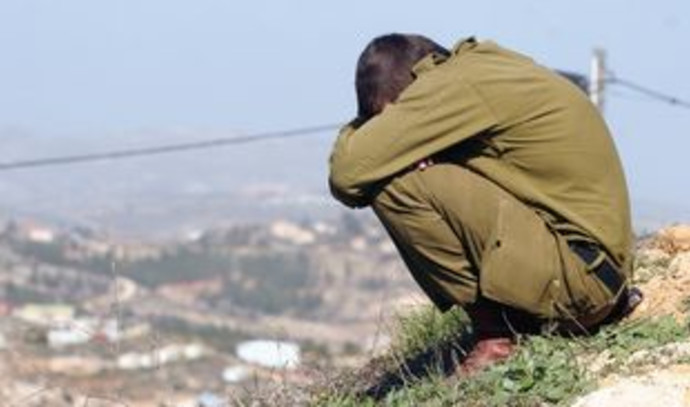A Bedouin IDF soldier who was traumatized fighting Hamas on October 7 is being denied mental healthcare, and is being kept in military jail after being arrested for cannabis possession, Army Radio reporter Doron Kadosh shared Tuesday on X, formerly Twitter.
לא חשבתי שתוך כדי המלחמה אפרסם סיפור כזה, אבל זה פשוט לא ייאמן: חייל צה״ל, גשש בן העדה הבדואית, שלחם בנחל עוז בקרבות השבת השחורה, לא מקבל מצה״ל טיפול נפשי לאחר שנמצא שהוא סובל ממצב נפשי קשה ופוסט טראומה.החייל היה עד למראות זוועה, גופות במצב קשה וחבריו לנשק שנפלו מול עיניו >>
— דורון קדוש | Doron Kadosh (@Doron_Kadosh) November 14, 2023
The soldier in question, whose name has not been revealed, was from the Bedouin tracker unit, specializing in identifying footprints and other markings left by humans and animals.
Fighting in Nahal Oz on October 7, the day Hamas invaded southern Israel, he witnessed the horrors and carnage as it was going on, spending hours there pushing back armed terrorists.
However, the soldier has yet to be provided any assistance in coming to terms with the traumatic events of that day, including seeing comrades who fought alongside him killed before his eyes.
The soldier had begun exhibiting symptoms of severe psychological distress roughly two weeks later and had entered into extensive treatment, including a number of hours of therapy on a daily basis.
Sometime after the beginning of his therapy, the soldier was arrested and placed in an IDF jail after military police found cannabis in his vehicle.
A prison officer met with the soldier following his arrest and incarceration and strongly recommended that he continue to receive the same level of psychological therapy under the circumstances.
Why has the IDF denied a traumatized Bedouin soldier therapy?
The IDF however, has refused to allow the soldier access to his mandated therapy instead stating that “The soldier was examined and found medically fit for detention. He receives treatment from the medical staff in the prison according to his needs.”
The soldier’s military legal representative stated “The soldier is in an acute mental state. Due to his arrest, he was denied stable and continuous treatment, which is critical for preventing post-traumatic fixation. The army does not offer an alternative solution and incarceration does not allow him to be treated.
“Leaving him in detention in this situation is unacceptable and may seriously harm him even later in his life.”




